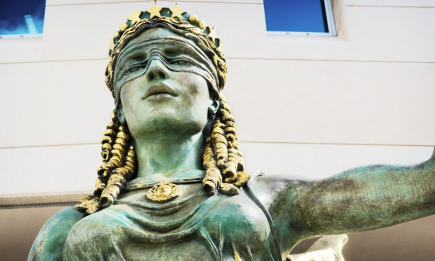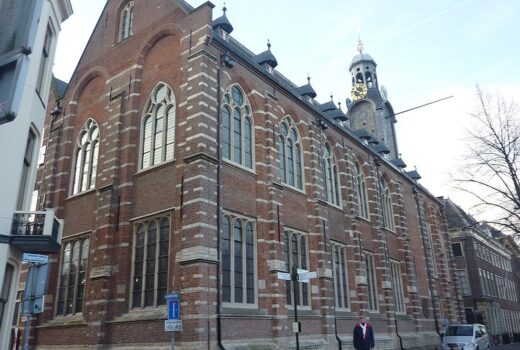The Court

Maarten van Munster, teacher at The Hague University of Applied Sciences, interviewed two directors of the documentary ‘The Court’, Marcus Vetter and Michele Gentile. The two German directors visited the Netherlands to show and explain their documentary at the Movies that Matter festival. Before the documentary Van Munster, together with the directors, explained the role of the ICC in international justice, its threats and the future of this important tribunal court.
Treaty of Rome
The International Criminal Court (ICC) is the first permanent international criminal court in the world. The ICC deals only with the most serious crimes, like war crimes and genocide, and only deals with the highest leaders that are supposed to have committed these crimes, think of generals, ministers and presidents.
“The ICC is a treaty-based organization and can therefore only prosecute those who signed the Rome Treaty. The ICC works on the basis of complementarity”, Van Munster explains. The ICC can prosecute when member states are not able to do the prosecution or do not want to prosecute.”
Marcus Vetter, made this documentary “to make the ICC more well-known. When I started this documentary I discovered that a lot of people, including journalists and politicians, did not know or fully understand this court. People asked: why aren’t Assad and the other leaders from Syria prosecuted? They can’t be prosecuted because they did not sign the Treaty of Rome, therefore the ICC does not have jurisdiction there. With this movie I want to make the ICC more well-known around the globe.”
Giving the ICC a face
‘The Court’ focusses on busy life of Luis Moreno Ocampo, the first chief prosecutor of the International Criminal Court. The filmmakers followed him during his preparations for the trial against the Congolese rebel leader Thomas Lubanga. They listen in when he is interviewed by journalists, join him for lunch with actress Angelina Jolie and accompany him on his visit to a Libyan minister, after the fall of Colonel Gaddafi.
“The movies shows a lot about the day-to-day business of the criminal court, but what were the restrictions?” the students asked. Marcus Vetter explains: “Ocampo was very welcoming, we even slept at his place. We actually became friends with everyone at the criminal court, but of course we couldn’t film everything. Meetings with ambassadors for example were off-limit, but during these six years we got all the material we needed.”
Another student wants to know why this documentary focusses on Ocampo instead on the ICC as a whole. “The film is focused on Moreno Ocampo instead of the ICC because it makes the film more personal, and it helps if you have an influential protégée to get access to meetings. During the Lubanga trial we couldn’t meet the judge or the defense, but we could use the recordings from the trial. Luckily, we could also use the evidence movie from Africa, that movie shows what the abduction of a 10-year old really means. It shows why the ICC is so important”.
“I can’t understand why everybody criticizes such a young institution instead of giving it a chance, especially because the work they do is so important”, Marcus Vetter said. Fortunately, the attitude is shifting. “Ocampo never thought that the US would have transferred a case to the ICC, but they did that with the Libya case. There will be a time when the US and other countries can’t withstand the ICC.”
Meest Gelezen
Wederom intimidatie van journalisten door universiteit, nu in Delft
‘Burgerschapsonderwijs moet ook verplicht worden in hbo en wo’
Raad van State: laat taaltoets nog niet gelden voor hbo-opleidingen
Vrouwen houden universiteit draaiende, maar krijgen daarvoor geen waardering
Extra geld voor bètafaculteiten is daar nooit terechtgekomen


